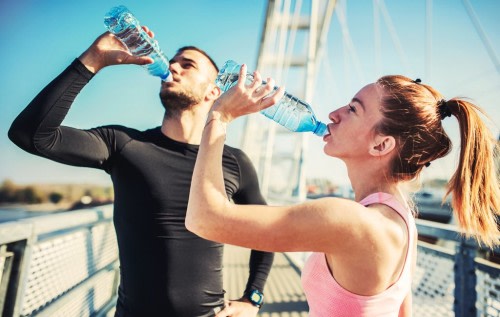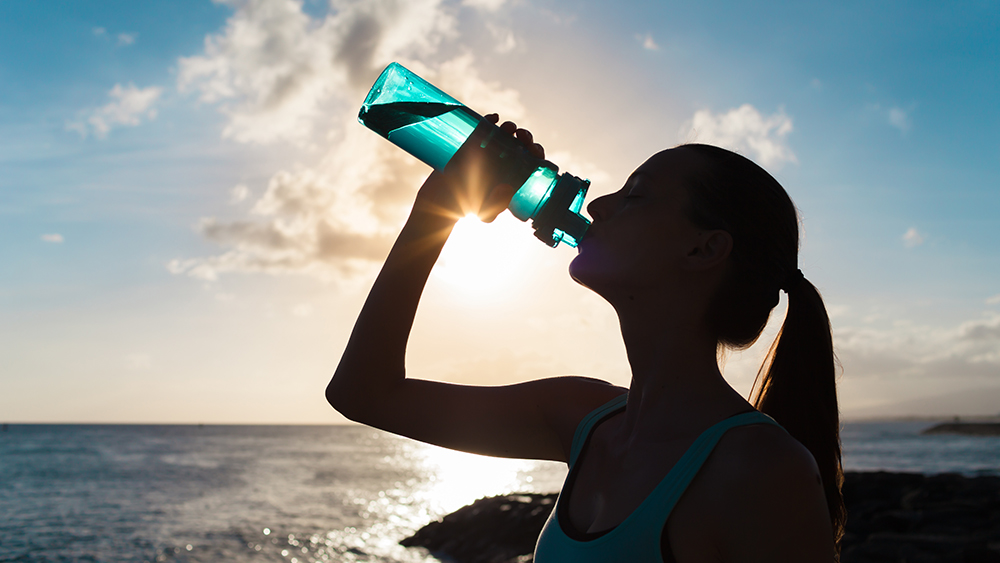
In the world of fitness, water is often overlooked in favor of more glamorous topics like nutrition plans, workout routines, and supplements. However, hydration is one of the most important factors in both fitness performance and overall health. Water plays a vital role in keeping your body functioning properly, from regulating temperature to aiding digestion and muscle recovery.
In this blog, we’ll explore why hydration is crucial for fitness and diet, how much water you really need, and offer some hacks to help you stay hydrated and optimize your performance.
1. Why Hydration is Critical for Fitness
A. Regulates Body Temperature
When you exercise, your body generates heat, and your core temperature rises. To prevent overheating, your body sweats to cool down. Sweat is primarily made up of water, which means you lose water as you sweat. Without proper hydration, your body struggles to maintain its temperature, leading to fatigue and decreased performance.
B. Improves Physical Performance
Even mild dehydration—just 2% loss of body weight due to fluid—can significantly impair physical performance. Dehydration affects your energy levels, muscle function, and endurance. It can lead to cramping, dizziness, and fatigue, which hinders your ability to push through a workout.
C. Boosts Muscle Recovery
Water is essential for transporting nutrients to cells and flushing out toxins. Staying hydrated helps with muscle recovery by aiding the delivery of essential nutrients like amino acids and oxygen to muscle tissue. It also helps to clear out metabolic waste that builds up during exercise, reducing soreness and speeding up recovery time.
D. Maintains Joint Health
Proper hydration keeps your joints lubricated and cushioned. Water makes up the synovial fluid that surrounds joints, which acts as a lubricant and shock absorber. Without enough water, joints can become stiff and more susceptible to injury, especially during high-impact exercises.
E. Optimizes Cardiovascular Function
Water is essential for maintaining blood volume and circulation. During exercise, your heart has to work harder to pump blood and oxygen to working muscles. Being well-hydrated helps your cardiovascular system function efficiently, reducing the strain on your heart and improving endurance.
2. Why Hydration is Important for Your Diet
A. Aids Digestion
Water plays a crucial role in digestion by helping break down food, absorbing nutrients, and moving waste through the intestines. Without sufficient water intake, your digestive system slows down, leading to bloating, constipation, and discomfort.
B. Regulates Appetite
Many people confuse thirst with hunger, which can lead to overeating. Drinking water before and during meals can help control your appetite and prevent you from consuming more calories than you need. Staying hydrated also ensures that your body can metabolize fats and carbohydrates efficiently.
C. Supports Weight Loss
Water can aid in weight loss by boosting metabolism and acting as a natural appetite suppressant. Drinking water, particularly before meals, can help you feel fuller, leading to reduced calorie intake. Additionally, water helps your body metabolize stored fat, making it easier to shed those extra pounds.
D. Balances Electrolytes
Electrolytes such as sodium, potassium, and magnesium are essential for muscle function and fluid balance. When you sweat during exercise, you lose electrolytes along with water. Replenishing your electrolytes by staying hydrated is important to avoid cramps, dizziness, and fatigue.
3. How Much Water Do You Really Need?
While the common advice is to drink 8 glasses of water a day, hydration needs vary depending on several factors, including age, gender, activity level, and climate. Athletes and those engaging in intense physical activity need more water to replenish what’s lost through sweat.
A. General Guidelines:
- Men: Around 3.7 liters (or about 13 cups) of water a day.
- Women: Around 2.7 liters (or about 9 cups) of water a day.
However, if you exercise or live in a hot climate, you may need more to replace fluids lost through sweat. During exercise, a good rule of thumb is to drink:
- 500 ml (17 ounces) of water 2-3 hours before exercising.
- 150-300 ml (5-10 ounces) every 20 minutes during exercise.
- 500 ml (17 ounces) after the workout to rehydrate.
B. Check Your Hydration Status
One of the easiest ways to check if you’re well-hydrated is to monitor your urine color. Ideally, it should be pale yellow. Darker urine may indicate dehydration, while clear urine could mean you’re drinking more than necessary.
4. Hydration Hacks: How to Stay Hydrated
If you struggle to stay hydrated, try incorporating these simple hacks into your daily routine:
A. Carry a Water Bottle Everywhere
Keeping a water bottle with you at all times is a great way to remind yourself to drink regularly. Whether you’re at the gym, office, or on the go, having water readily available makes it easier to take small sips throughout the day.
B. Set Hydration Goals
Use apps or reminders on your phone to set hydration goals. Many fitness apps have built-in water trackers that let you log your intake and remind you when it’s time to drink.
C. Flavor Your Water
If plain water feels boring, try adding natural flavors like lemon, cucumber, mint, or berries to make it more appealing. You can also opt for herbal teas or coconut water, which are hydrating and full of nutrients.
D. Eat Water-Rich Foods
Certain fruits and vegetables have high water content and can contribute to your daily hydration. Some examples include:
- Cucumbers (96% water)
- Watermelon (92% water)
- Strawberries (91% water)
- Oranges (86% water)
E. Drink Water Before Meals
To stay hydrated and aid digestion, drink a glass of water before each meal. This simple habit helps you consume more water while also curbing overeating.
F. Hydrate Before and After Exercise
Pre-workout and post-workout hydration are crucial for maintaining fluid balance. Drink water before your workout to ensure your muscles are primed for performance, and rehydrate afterward to support recovery.
5. What Happens When You’re Dehydrated?
Dehydration can sneak up on you, especially during long workouts or hot weather. Here are some signs of dehydration:
- Dry mouth
- Dizziness or lightheadedness
- Fatigue
- Muscle cramps
- Dark yellow urine
- Increased heart rate
In severe cases, dehydration can lead to heat exhaustion or heat stroke, both of which are medical emergencies. It’s crucial to stay aware of your hydration levels and act quickly if you notice any signs of dehydration.
6. Hydration Myths Debunked
A. Myth 1: You Only Need Water When You Feel Thirsty
By the time you feel thirsty, you’re already mildly dehydrated. It’s best to sip water consistently throughout the day rather than waiting for thirst to hit.
B. Myth 2: All Beverages Hydrate You
While drinks like coffee, tea, and soda contain water, they are not as hydrating as plain water. Some, like caffeinated beverages, can even have a diuretic effect, leading to increased urination and potential dehydration.
C. Myth 3: Drinking Excess Water Will Boost Performance
More isn’t always better. Overhydration, or hyponatremia, can dilute sodium levels in the blood, leading to dangerous consequences like swelling, confusion, or seizures. Balance is key.
Conclusion
Water is the cornerstone of fitness and diet success. From enhancing physical performance to aiding in recovery and digestion, hydration plays a critical role in keeping your body functioning at its best. By understanding your hydration needs and implementing these simple hacks, you can ensure that you stay hydrated, healthy, and ready to take on any fitness challenge.
